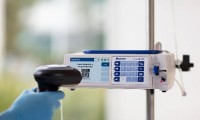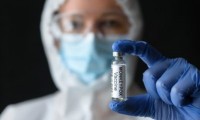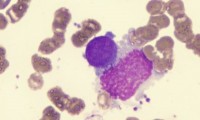-
Baxter receives FDA clearance for delayed Novum IQ infusion pump
- Source: drugdu
- 417
- April 5, 2024
-
Abbott nets FDA approval for Triclip
- Source: drugdu
- 355
- April 5, 2024
-
Alebund receives ODD for investigational drug AP303
- Source: drugdu
- 452
- April 5, 2024
-
Bavarian Nordic expands access to mpox vaccine in US
- Source: drugdu
- 365
- April 5, 2024
-
Xilio fires 21% of its workforce and reprioritises pipeline
- Source: drugdu
- 348
- April 5, 2024
-
Cellenkos links with Mount Sinai to explore CK0804 for myelofibrosis
- Source: drugdu
- 286
- April 5, 2024
-
Eisai to divest rights for two therapies to Kaken
- Source: drugdu
- 511
- April 5, 2024
-
Zhongde Meilian HuGen 21HS Fluorescent Assay Kit Launched on the Market
- Source: drugdu
- 477
- April 5, 2024
-
Jazz Pharmaceuticals Completes Biologics License Application for Zanidatamab for HER2-Positive Metastatic Biliary Tract Cancer
- Source: drugdu
- 399
- April 5, 2024
-
FDA Approves Abbott’s i-STAT TBI Whole Blood Rapid Test to Assess Patients for Concussions at Bedside
- Source: drugdu
- 363
- April 5, 2024
your submission has already been received.
OK
Subscribe
Please enter a valid Email address!
Submit
The most relevant industry news & insight will be sent to you every two weeks.

















